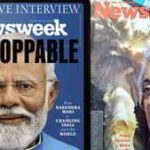 10 Tough Interview Questions and Answers
10 Tough Interview Questions and Answers
Common difficult interview questions with sample answers
Let’s look at a few common tough interview questions with examples of how you could answer them. When preparing for your interview, think about a few different scenarios of tough questions you may be asked depending on your industry.
1. What critical feedback do you most often receive?
This question is similar to “What are your greatest weaknesses?” Employers ask this question to see if you have a sense of self-awareness and that you’re actively working on self-improvement. To answer this question, think of a genuine piece of criticism you’ve been given, or a weakness you’re aware of. Provide a brief explanation of the critique and how you’re working on improving it.
Example: “In the past, I’ve been told that I tend to talk over others in meetings. While I do get excited about the projects I’m working on and love collaborating with others, I deeply understand the value of active listening and using the diversity of ideas in the room. I’ve made it a point to listen actively by taking notes and make myself the last one to contribute while others are sharing.”
2. Tell me about a time you overcame an obstacle.
Employers ask this question to understand how you deal with difficulties. You can use the STAR method when answering behavioral interview questions like this. Provide a brief summary of the situation, your role in the situation, the action you put into place to resolve the issue, and how the issue was resolved as a result.
Example: “I worked as a retail manager at a department store during prom season. A customer purchased a dress online and had it delivered to the store where it was accidentally purchased by another customer. Before calling the original buyer, I located the same dress at another location nearby. I ordered it to be pressed and delivered to her home the morning of prom with a gift card to thank her for her understanding. The customer immediately wrote us a five-star review on several review sites.”
3. How do you handle stress?
Stress is a component in many jobs, employers want to know you’ll handle it constructively with a good attitude to maintain good company culture. You can answer this question by explaining how you typically respond with an example to support it.
Example: “Communication is key for me in stressful situations, even if over-communicating is necessary to ensure everyone is on the same page. For example, I was working on a project with another team and we found there was duplicate work being done. By scheduling a weekly standup and keeping open lines of honest communication with our teams and managers, we pushed the project forward and ended up contributing to a significant company goal in a big way.”
4. What have been your most positive and negative management experiences?
Employers might ask you this question to understand what you like and dislike in certain management styles. This might help them decide whether or not you would be a good fit under a certain manager. You should answer this question honestly and as tactfully as possible.
Example: “One of my past managers, while very talented, tended to manage our team’s work closely with little flexibility on how things were to be done. It made me feel like I wasn’t trusted and there wasn’t much room for process improvement. My most recent manager was terrific at listening to my needs and helping me get the resources I needed to achieve my goals. I thrive under managers who create a collaborative, trusting team environment.”
5. What’s your biggest weakness?
Employers may ask about your weaknesses to see if you have a sense of self-awareness and how you’re working to improve.
Example: “One weakness I’ve been working on is my ability to provide constructive criticism. I understand how providing feedback on work or projects that could have been handled better is extremely valuable. To improve on this, I’m writing down my feedback before I approach my colleagues. This helps me to plan out my answer, give the best criticism possible and be less nervous.”
6. Why are you leaving your current position?
This is valuable information for employers to understand. It helps them ensure the opening will be a better fit, make sure they can provide for what your previous employer did not or see if you might have contributed to a negative experience for both you and the employer. Answer this question honestly, but refrain from providing too much personal or negative detail.
Example: “While I highly valued my time at my previous company, there are no longer many opportunities for growth that align with my career goals. This position aligns perfectly with my skill set and how I’m looking to advance my career.”
7. How many pennies, if stacked on top of each other, would equal the height of the Empire State building? (Or other questions with no right or wrong answer)
Employers may ask questions like this to understand your thought processes. They want to gauge whether you can think analytically, deal with ambiguity and communicate clearly. It is completely appropriate and even encouraged to ask for a few minutes to gather your thoughts. Even if your answer seems silly or wrong, employers are simply looking for an answer with logical support. It is also appropriate to ask follow-up questions for more information or context, though they may or may not provide the answer.
Example: Start by breaking down a solution based on related information you might already know. What is the approximate height of the Empire State Building? You can probably deduce that 500 feet is too short and 5,000 feet is too tall. Let’s say you guess roughly 1,500 feet. From there, consider the thickness of a penny. To do this, you might think about how many stacked pennies equal one inch. Let’s say 15. Next, since you know there are 12 inches in a foot and you’ve estimated the building’s height at 1500 feet, you multiply to get an approximate answer of 270,000 pennies to equal the height of the Empire State Building.
8. Why do you want to work here?
Employers often ask this question to make sure you’ve put thought and research into your decision to seek employment at their company. This question might be particularly important if you’re changing industries or job roles.
Example: “When I began looking for a new position, I purposefully sought out companies that are committed to integrity, philanthropy and innovation, and your company ranks at the top of the list. Your company has always been forward-focused and used technology to help improve the customer experience, and I’m looking for an opportunity where I can put my passion for great UX to work.”
9. Why should we hire you?
Employers might ask this question to understand what differentiates you from other candidates they might be interviewing. To answer, explain how your experience, skills and attributes make you the best fit for the job. Make sure to carefully review the job description beforehand to understand what qualities they’re looking for.
Example: “You should hire me for my passion and proven abilities in organization for office efficiency. In my previous role as an administrative assistant, I came up with a plan to reorganize the office supply closet by category. Because items were easier to find, we placed fewer orders and saved 30% on office supplies year-over-year. I’m excited to bring my skills to this role.”
10. Do you have any regrets?
Employers might ask this question to get a self-assessment on possible shortcomings in your life. To answer this question, you might choose to say that you do not have any regrets in life for a certain reason. Be sure to let them know that you have made mistakes, you have learned from them to become better. If not, you might select a regret or shortcoming that is both professional and would not hinder your ability to perform the job in any way.
Example: “I do always wish I had known what I wanted to do very early on in my career. Having more years to grow and advance would help me be even better at my job. However, I learned skills in my previous career that I wouldn’t have otherwise learned that help my in me in my job today.”















